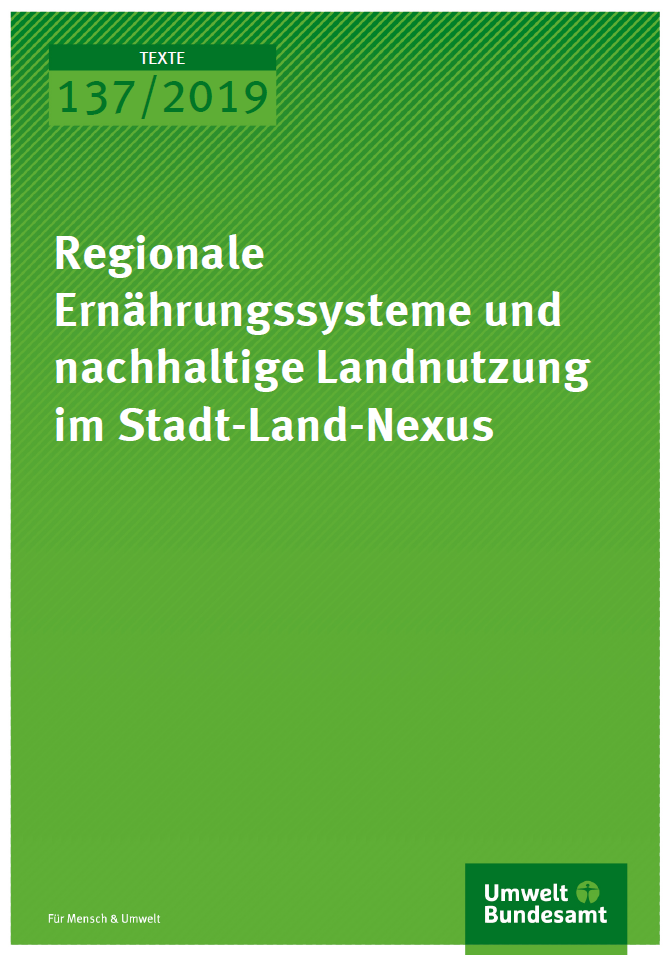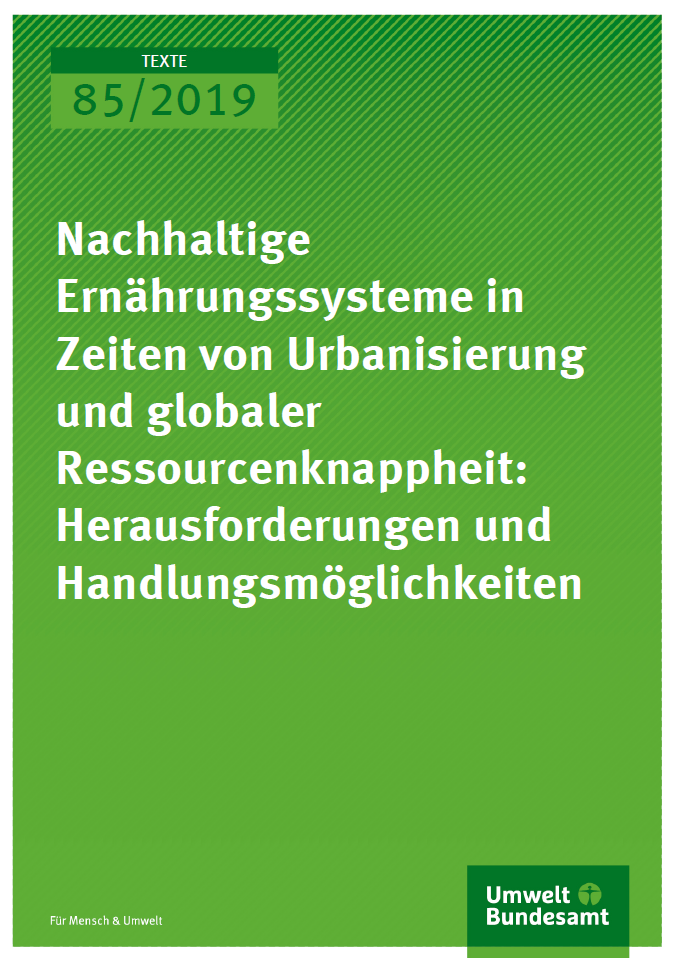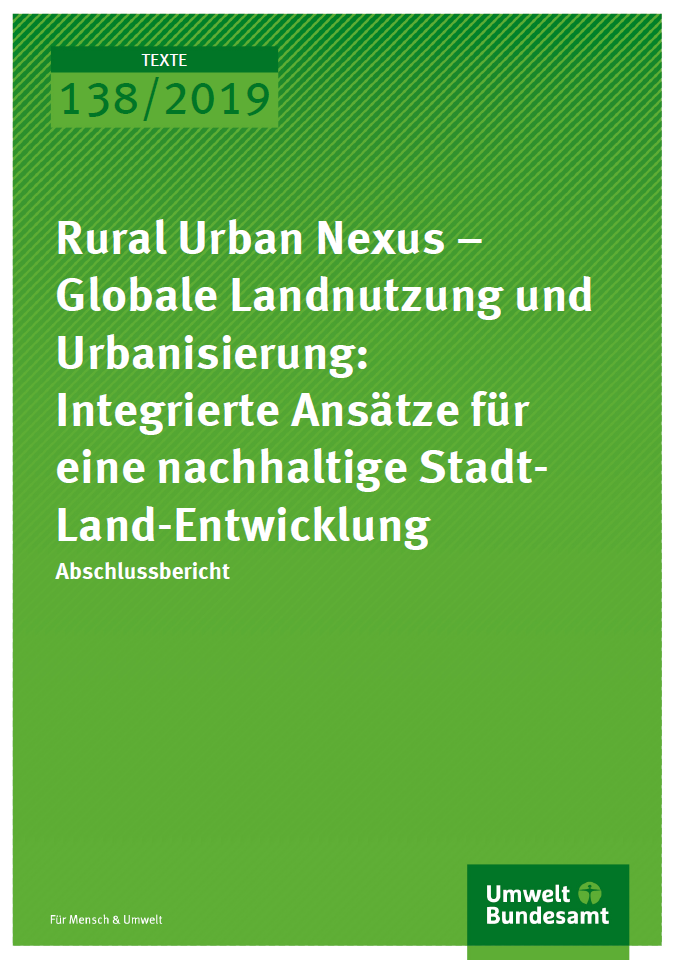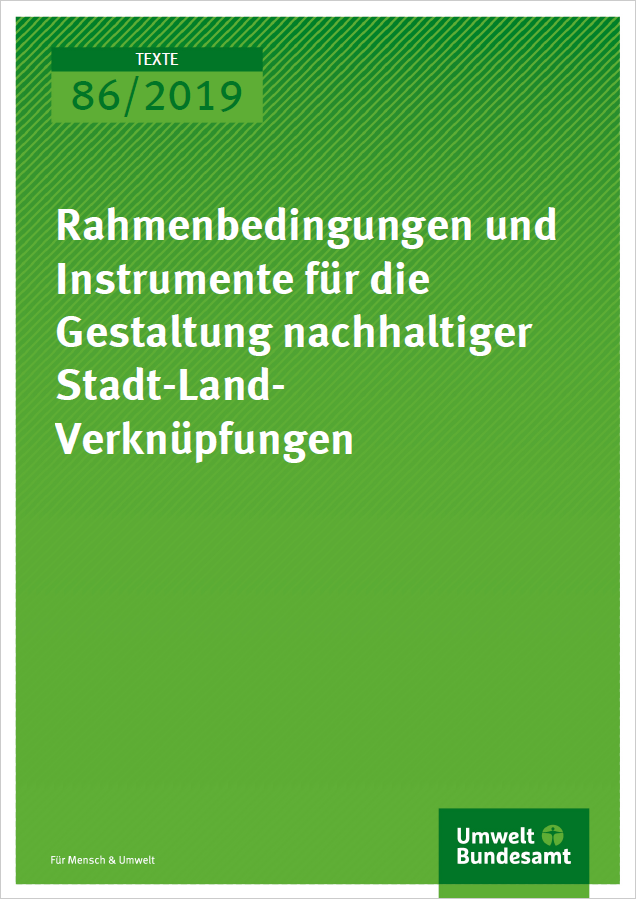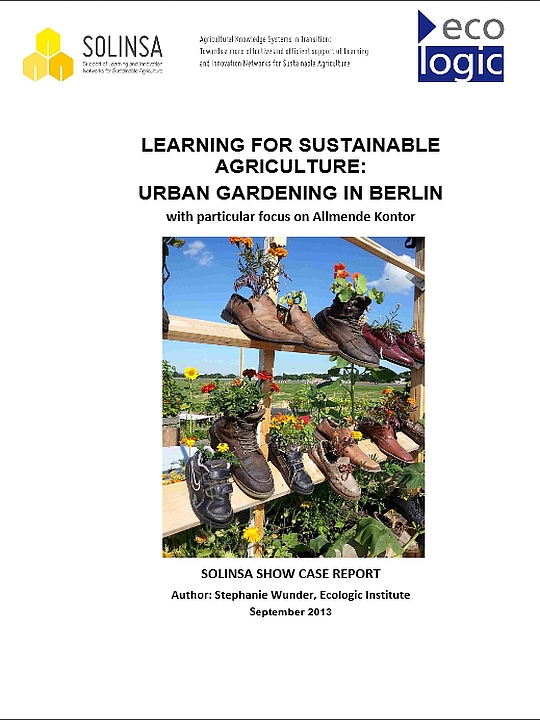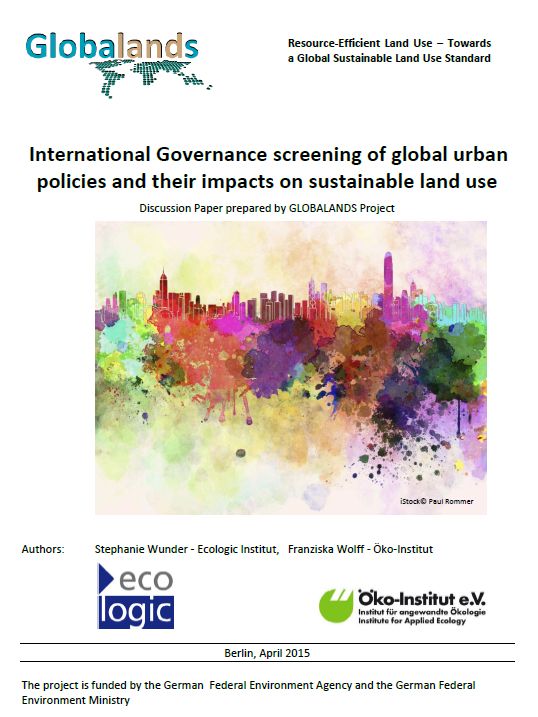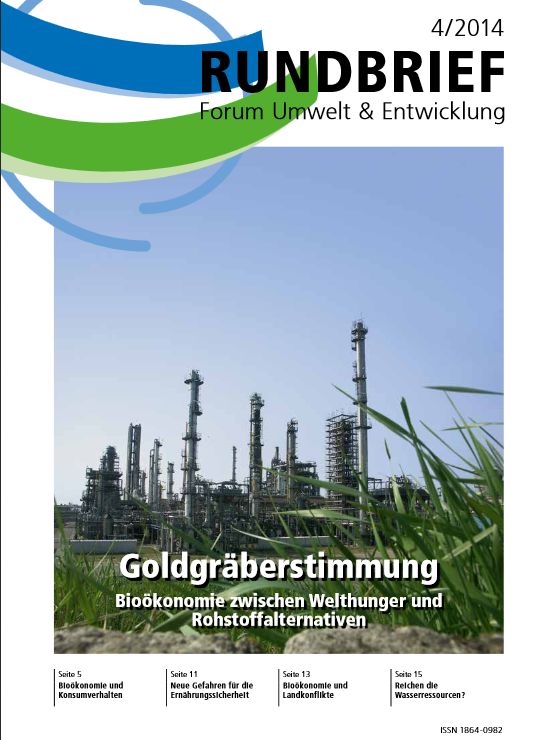
Rural Urban Nexus – Global Sustainable Land Use and Urbanisation (RUN)
- Project
- Duration
-
-
Between 2016 and 2019 the project "Rural Urban Nexus – Global sustainable land use and urbanization" developed conceptual approaches and policy recommendations directed at an integrated and sustainable rural and urban development.
Background
More than half of the world population lives in urban areas. By 2050, this share is expected to increase to 66 % (UN DESA 2014). Urban areas only account for 3 % of the earth’s surface, but contribute 80% of the global economic output. They are responsible for 76 % of the consumption of natural resources, 60% of GHG emissions, and 50% of the world’s waste.
The future of urbanization also has implications for the relationship between cities and their surrounding rural areas. Both have always been interconnected and related over the exchange of goods, services, people, ecosystem services, exchange of knowledge, trade etc. Through changes in economic patterns, ICT innovations, regional urbanization and through the exchange of goods and people across further distances, the borders between cities and rural areas are becoming increasingly blurred.
At the same time, policies for rural and urban development continue to be largely disconnected and rarely discussed from an integrated perspective, leading to an often cited rural-urban-dichotomy. For the sustainability of cities and their surrounding region, it is therefore crucial to develop concepts, instruments and governance principles that can address the increasing necessity of integrated planning.
Project goal
The goal of the project, was to develop integrated approaches for a viable relationship between rural and urban areas and to demonstrate linkage points to global sustainable land use in the context of urbanization.
With this, the project contributed to overcoming "silo thinking" with an integrated approach, bringing together relevant sectoral policies on different levels and involving rural areas more strongly in the rural-urban-discourse. The project was carried out on behalf of the German Federal Environment Agency (UBA) and the German Federal Ministry for the Environment (BMUB).
The project started with a review of the current state of information on the rural-urban nexus. Specifically this included an analysis of existing development concepts, i.e. for urban planning, for insights for sustainable rural-urban planning; analysis of resource metabolism between cities and surrounding (rural) areas; as well as examination of the connection between cities and surrounding areas in regard to food production and consumption. Alongside a general literature review, concrete examples of a successful rural-urban nexus have been collected and analysed. In parallel, political processes, such as the implementation of the UN Sustainable Development Goals (SDGs) and the "New Urban Agenda" developed for the Habitat III Conference in 2016 were analysed to identify entry points to strengthen rural urban linkages.
Building on this work, an overarching theoretical concept of a sustainable rural-urban nexus has been developed and discussed with experts, stakeholders, and practitioners.
Finally, conclusions and recommended actions were derived about the cornerstones for a sustainable rural-urban nexus and policy recommendations for German policymakers.
Here you can download the Rural Urban Nexus project flyer [pdf, English].
Project results
The report "Integrated approaches for sustainable urban-rural development" published by the German Federal Environment Agency at the end of 2019 summarizes the key results of the project. The findings of the project show that there is already a wide range of strategic approaches, instruments and institutional forms for better collaboration between cities and their surrounding areas. Rather than establishing new instruments, administrations and policymakers should make greater use of existing possibilities – especially informal instruments of regional planning – and to integrate sustainable urban and peri-urban development into existing policies. In particular, the development of regional food strategies can be an important entry point and catalyst for achieving sustainable urban rural development.
In parallel, four in depth reports were published:
- Framework conditions and instruments governing a sustainable rural-urban nexus
- Analytical and conceptual approaches for the development of the urban and the rural
- Sustainable food systems in times of urbanization and global resource scarcity: challenges and opportunities
- Regional food systems and sustainable land use in the Urban-Rural Nexus.
All reports are in German but contain an English summary.
A summary of the project results with regard to the role of regional food strategies can also be found in the article "Seven at a Stroke – Regional Food Strategies as the Key to More Sustainable Urban-Rural Cooperation" published in January 2020 by Stephanie Wunder and Franziska Wolff in the Critical Agricultural Report.
Furthermore, the project team published a number of discussion papers and conducted several workshops. The workshop results and discussion papers can be downloaded at the project website www.rural-urban-nexus.org




